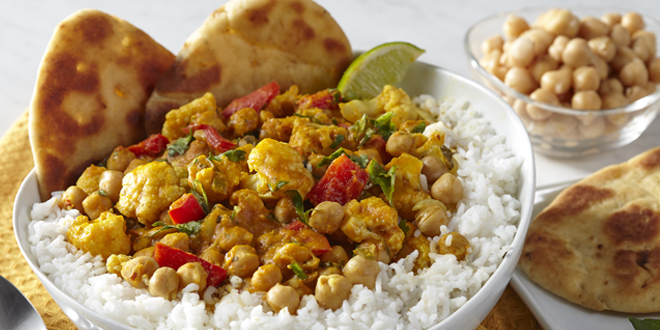Despite the popularity of high-protein and low-carb diets like Paleo, Atkins and Keto, Americans are actually eating less meat overall. And experts say that’s a good thing—skipping meat even one day a week, as advocated by the Meatless Mondays campaign, is good for our health, our pocketbooks and the environment.
You might have first heard of Meatless Mondays from Dr. Oz, but actually the idea traces back to World War I and World War II, when Americans were asked to give up meat a day or two a week to support the troops. The modern Meatless Monday campaign, which started in 2003, was the brainchild of the late legendary adman Sid Lerner, who recalled President Roosevelt’s request for meatless Mondays during the Second World War. Lerner teamed up with Johns Hopkins Center for a Livable Future, and Meatless Mondays became a global movement, formally adopted by more than 40 countries, that encourages people eat less meat for their own health and that of the planet.
Although only 5 percent of Americans identify as vegetarian, many people are eating less meat and embracing plant-based diets, which focus on vegetables but can include some meat and fish. There are good reasons for this trend: a vegetarian diet is linked to significant health benefits, and every day you don’t eat meat saves you approximately $2, or up to $750 a year. If you’re concerned about the environment, consider this: skipping one serving of beef every week for a year would save the same amount of emissions produced by driving 348 miles in a car.
Despite the many benefits of forgoing or cutting down on meat, myths persist about vegetarian meals. One of the most pervasive is that you won’t get enough protein. Although insufficient dietary protein is indeed a problem in much of the developing world, Americans actually eat about twice the amount of protein they need. What’s more, well-balanced vegetarian dishes include plenty of protein from sources such as legumes (especially lentils and beans), nuts, seeds, soy products and grains.
Another myth is that vegetarian cooking is difficult or requires special training, but these seven easy recipes for your Hamilton Beach slow cooker, rice cooker or air fryer put that tall tale to rest. Even diehard meat-and-potatoes types will warm to these innovative vegetarian and vegan meals.
7 vegetarian dinner recipes for any day of the week
Warm Butternut Squash & Quinoa Salad
Made with hot mango chutney and Jamaican Jerk Seasoning, this warm salad features a nice balance of sweet and spicy flavors. Quinoa serves as a great source of both protein and fiber.
Farro Risotto with Roasted Vegetables
For a higher-protein stand-in for rice, try farro in your next risotto. An ancient grain, farro has a nutty flavor that makes this simple dish distinct and delicious.
Garlic Lime Spiralized Vegetables with Cashews
Fabulous as a side or a meal in itself, this fresh veggie dish with spirals of carrots, yellow squash and zucchini is as colorful as it is tasty.
Spicy Quinoa and Vegetable Bowl
With sweet potatoes, fire-roasted tomatoes, bell pepper, quinoa and black beans, this spicy slow cooker recipe is packed with fiber and protein. Sour cream and avocado balance out the chipotle powder, spices and jalapeno.
Curried Vegetables and Chickpeas
This creamy slow cooker vegan stew starts with a coconut curry base and includes chickpeas for protein along with cauliflower, peppers and tomatoes. Spices add mild heat.
With your Hamilton Beach air fryer, eggplant parmesan gets a timely update: thin slices of crispy eggplant layered with fresh mozzarella, tomatoes and basil. Even people who don’t like the texture of traditionally prepared eggplant will like this.
Air-Fried Marinated Tofu with Broccoli & Onions
Tofu never tasted better. The flavor comes from pressing and marinating the tofu, then the air fryer yields the perfect texture—slightly crispy on the outside and softer inside. Includes snow peas, peppers, onions, broccoli, garlic and a mild Asian Ginger sauce.










Great ideas!
Great recipie!